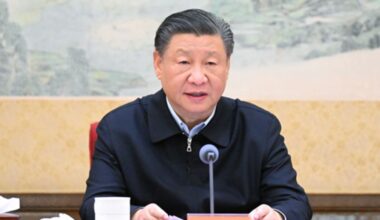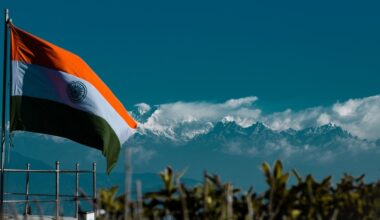In recent years, Pakistan’s political and military trajectory has increasingly raised concerns on the global stage. Once viewed as a regional player with limited influence, the country is now becoming a growing threat to global peace and security. With a combination of political instability, a powerful military, nuclear capabilities, and a complicated relationship with neighboring countries, Pakistan has the potential to disrupt international relations and pose serious risks to the world.
1: Nuclear Capabilities and Regional Tensions
One of the most alarming aspects of Pakistan’s growing threat to global stability is its nuclear weapons program. Pakistan is a declared nuclear power, and while its nuclear arsenal is primarily seen as a deterrent against India, its possession of nuclear weapons in a volatile region poses a significant risk. With ongoing tensions between India and Pakistan, the potential for conflict — whether deliberate or accidental, remains high. The possibility of nuclear escalation in the South Asian region is a source of immense concern for the international community.
Impact on Global Security:
Any escalation of conflict between India and Pakistan could have devastating consequences, not just for South Asia but for global peace. The possibility of nuclear exchange in such a tense environment remains one of the most critical threats to world security.
2: Terrorism and Extremism
Pakistan has long been accused of harboring militant groups that operate in the region and beyond. While the government claims to combat terrorism, the country’s intelligence agencies have often been linked to extremist organizations, such as the Taliban and Lashkar-e-Taiba, both of which have been involved in violent acts across South Asia and globally. The Taliban’s resurgence in Afghanistan has further highlighted the risks of Pakistan’s involvement in fostering extremist ideologies.
Impact on Global Stability:
The spread of terrorism and extremism, especially in regions like Afghanistan, can destabilize entire countries, disrupt international trade, and fuel transnational terrorism. As these groups grow in power and influence, they can launch attacks across borders, destabilizing regions far beyond South Asia.
3: Political Instability and Governance Issues
Pakistan’s political instability has long been a source of concern. A country with frequent changes in leadership, corruption, and power struggles between the military and civilian governments struggles to maintain effective governance. This instability has contributed to social unrest, economic decline, and a lack of long-term strategy to address crucial issues such as poverty, education, and healthcare.
Impact on Global Perception:
Instability within Pakistan can spill over into its foreign relations. A fractured internal environment can lead to erratic foreign policy decisions, unpredictable actions, and increased vulnerability to external influences, all of which can create uncertainties for global security.
4: The China-Pakistan Relationship
Pakistan’s increasing reliance on China for economic and military support is another aspect that could complicate global relations. The China-Pakistan Economic Corridor (CPEC) is a key strategic project that has been hailed as an economic boon for Pakistan. However, it also has significant geopolitical implications. The strengthening of ties between China and Pakistan may lead to further tension with countries that view China’s rise as a threat to their own security, including the United States and India.
Impact on Geopolitical Dynamics:
Pakistan’s growing relationship with China is reshaping the strategic balance in Asia. The increasing Chinese influence in Pakistan, particularly in military and technological sectors, can provoke tensions with neighboring countries and influence the broader geopolitical landscape.
5: Humanitarian and Economic Challenges
While Pakistan faces multiple geopolitical challenges, the country’s internal problems also play a major role in its growing instability. Pakistan’s economy has struggled for years, with inflation, debt, and corruption impacting its economic health. Social issues, such as poverty, lack of education, and healthcare, contribute to internal unrest, which can destabilize the region further.
Global Impact:
Economic instability in Pakistan can have ripple effects across global markets. As a country with a large population and significant strategic importance, Pakistan’s struggles could destabilize the region’s economy, affect international trade routes, and contribute to global humanitarian crises.
6: Human Rights Violations and International Image
Pakistan has faced numerous criticisms regarding its human rights record. Issues such as the suppression of political dissent, discrimination against minorities, and restrictions on free speech have contributed to its negative international image. These violations not only harm the country’s own citizens but also raise concerns about its commitment to global norms and the rule of law.
Global Consequences:
Human rights violations in Pakistan can influence diplomatic relations with key international actors. As global pressure mounts on Pakistan to improve its record, its internal issues may contribute to further isolation, economic sanctions, and strained relations with global powers.
Pakistan’s growing role as a threat to global stability is becoming increasingly clear. With its nuclear capabilities, history of supporting extremist groups, political instability, and complex alliances, the country poses significant risks to regional and global security. The international community must closely monitor Pakistan’s actions and work toward diplomatic solutions to mitigate these growing threats. The future of global peace may depend on how the world addresses the challenges arising from Pakistan’s actions on the global stage.










